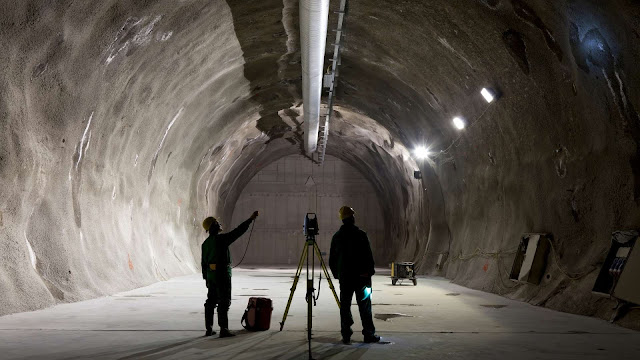Enabling autonomous operations and understanding the location of people and assets in real time are necessary for realizing fully operational smart mines. Smart mines require the ability to make good decisions based on large volumes of data, specifically within tunnels. This capability requires enhanced network availability and corresponding visualization tools to provide an intuitive understanding of the large amount of information generated.
The drive to digitize and automate underground operations requires the gathering of real-time data. Underground smart mines deal with complexities such as operations occurring in three dimensions over hundreds to thousands of kilometres; power, ventilation, and airflow considerations; potential for personal safety concerns with ambient temperatures sometimes over 45 degrees Celsius (113 degrees Fahrenheit); and airborne pollutants that can impact worker health. It is imperative for both safety and efficiency that an underground mine be able to locate people and assets as close to real time as possible.
Improving workforce productivity while increasing safety and optimizing fleet productivity and payload are key objectives in underground mining. Visualizing worker and asset locations and producing useful metrics from the increasingly digitized operational technology (OT) edge has been shown to be helpful in achieving these goals. These metrics provide inputs into both environmental management and cultural heritage protection systems, which show proximity to protected areas and prevent operations on impinging via alerts or geofencing.
Cisco’s forward thinking and commitment to the future of mining aims at digitization, automation, and net-zero emissions outcomes in mines. These objectives require network and communication reliability in order for customers to achieve high levels of visibility over their operations. To deliver on this goal, Cisco collaborates with ecosystem partners that deliver complementary solutions like GeoMoby. GeoMoby provide blueprints for reliable operational environment network infrastructure combined with a sensor-driven visualization layer that brings real-time insight into mining operations.
Solutions and benefits
- Underground mining benefits from ecosystem-based, end-to-end solutions to fulfill specific requirements for sensor-driven connectivity and augmentation such as last-mile connectivity, temporary coverage, and low-bandwidth coverage for areas without Wi-Fi.
- Cisco Spaces provides location and telemetry data for indoor and outdoor use cases. This data produces connectivity, environmental, and location-based insights for ecosystem-based solutions.
Opportunity with GeoMoby
- Reduction or elimination of gaps in network connectivity and communication
- All-in-one 3D map and real-time location, including existing Cisco tags and infrastructure
- Convergence between OT/IT: traffic management, ventilation automation, IoT sensors, data collection, etc.
- New solution blueprint that extends value for customers using Cisco solutions and specialist ecosystem partners such as GeoMoby
The common goal of GeoMoby and Cisco is to accelerate the digitalization of the mining industry. GeoMoby uses, extends, and enhances Cisco technology within mining operations. The result is a readily implementable mining platform that enables continual optimization of operations and safety in underground mining.
Use cases
| Objective | Description | Use Cases |
| Improve workforce productivity |
|
|
| Increase operational efficiency of assets |
|
|
| Increase worker health and safety |
|
|
| Increase fleet productivity and payload |
|
|
| Visualize people and assets with an electronic tag board |
|
|
| Environmental management system |
|
|
| Cultural heritage protection system |
|
|






0 comments:
Post a Comment